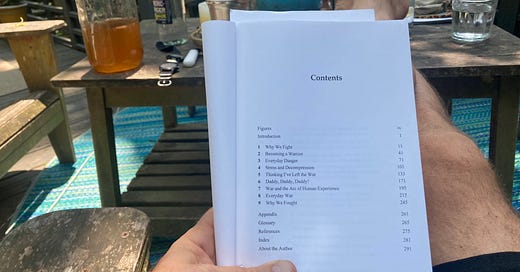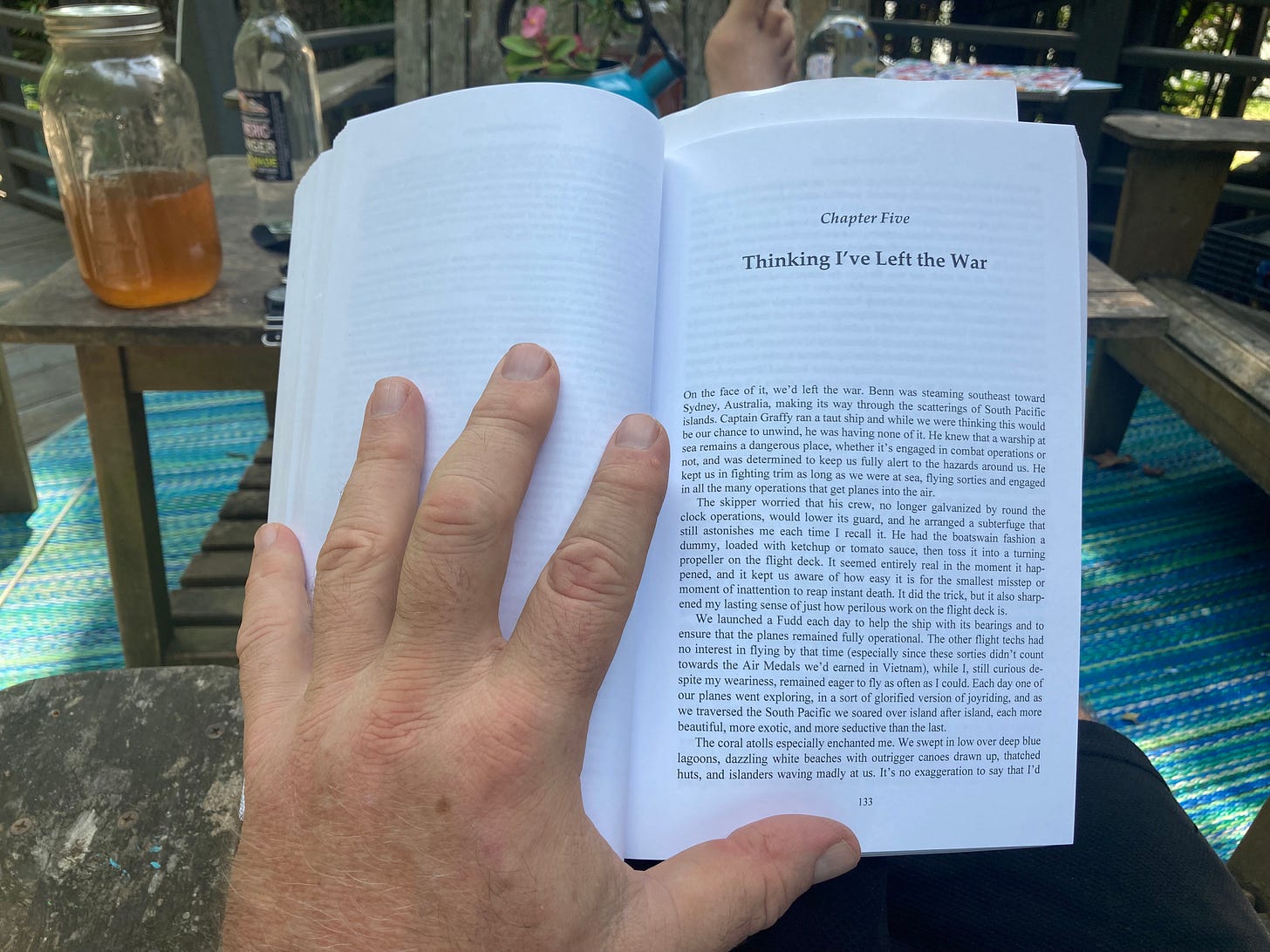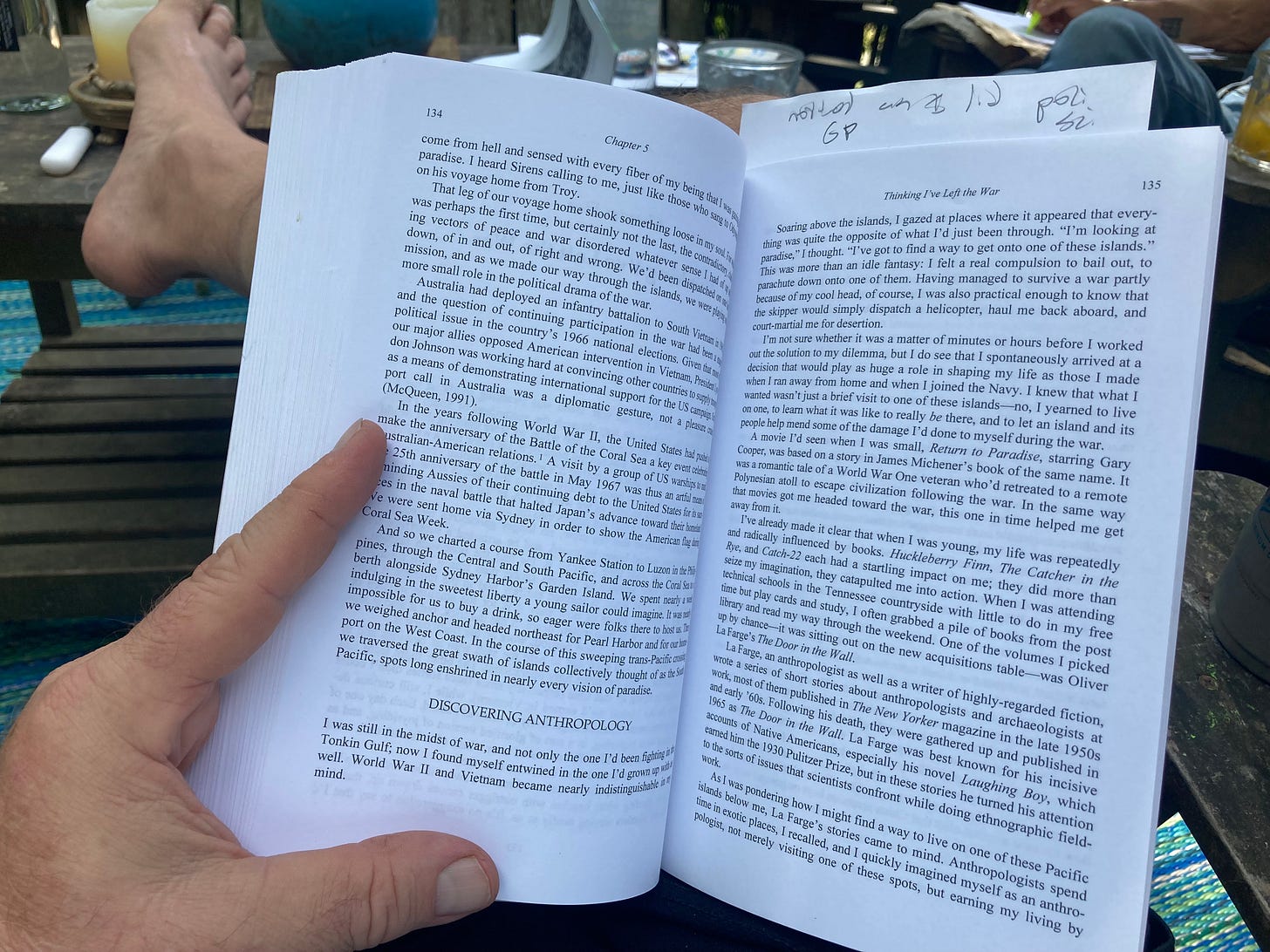I have reached the middle of this account of the life of a colleague. After the fifth of 9 chapters I paused to read the Glossary at the back for a firm grasp of novel terms whose use I have been learning in context.
AEW: Since World War II many military forces have employed a wide variety of aircraft, including planes, blimps, and helicopters, to put radar systems high in the air. This enables surface forces to see much farther.
The author ran Airborne Early Warning radar
CVS: In the US Navy’s nomenclature CV stands for aircraft carrier. For several decades in the 1950s through 1970s, some of the old World War II-vintage Essex class carriers were assigned anti-submarine warfare duties (ASW) and designated CVS to distinguish them from the attack carriers (CVA) charged with bombing.
off a ship fighting submarines the Democratic Republic of Viet Nam did not have.
Delousing: One of the tasks of carrier AEW. When aircraft were returning from bombing strikes to their carriers, it was potentially feasible for North Vietnamese MiG attack aircraft to tuck themselves in directly behind them and thus slip undetected into range to attack the US ships.
He searched for the DRVN aircraft who never attacked, not least because there never was a North Viet Nam. Hey, you don’t want to be in a war that makes sense.
You don’t want to be in any war. War is like torture, something we do because it is wrong.
Terror. But some people adapt to life in early childhood in such a way that as young adults they are very good at being scared to death.
When they don’t die in war they carry on in peace. The title of Chapter 5 of War and the Arc of Human Experience by Glenn Petersen is Thinking I’ve Left the War.
Me, I remember when I thought I had nothing to do with that war, an affair of boomers and their dads.
On the face of it, we’d left the war.
The war at Yankee Station in the Gulf of Tonkin. But not war generally.
[His ship captain] had the boatswain fashion a dummy, loaded with ketchup or tomato sauce, then toss it into a turning propeller on the flight deck.
Yeesh. That’ll teach ‘em.
My teacher Harold Bloom, my own father’s age, a child in his war as I was in mine, repeated to me many times that Sigmund Freud spoke of defense against terror, of repression, as flight. Glenn Petersen volunteered for the daily flight off the carrier steaming home across the Pacific.
Looking down he discovered the atolls, and the peoples in their canoes who had discovered their islands in the first settlement of the last ocean, just in time for contact among all peoples of the earth. He discovered anthropology.
I was still in the midst of war, and not only the one I’d been fighting in the Tonkin Gulf; now I found myself entwined in the one I’d grown up with as well. World War II and Vietnam became nearly indistinguishable in my mind.
Soaring above the islands, I gazed at places where it appeared that everything was quite the opposite of what I’d just been though. “I’m looking at paradise,” I thought. “I’ve got to find a way to get onto one of these islands.”
And so he did. Thinking I’ve Left the War follows the airman sailor through his subsequent training and work as anthropological consigliere to the Federated States of Micronesia in their resistance to the United States of America.
If you have never heard of him or them that would be because they used peace, and reason, and won. His may be the great anti-colonialist contribution of our profession and you haven’t heard about it.
Oh, because Viet Nam. Because working class. I remain belligerent about these things.
Viet Nam letters has addressed War and the Arc of Human Experience by Glenn Petersen 7 times so far. We began on February 19, 2022.
The second posted on March 7, 2022, third on March 28, 2022, fourth on April 27, 2022, fifth on May 30, 2022, and sixth on July 11, 2022.
Viet Nam letters respects the property of others under paragraph 107 of United States Code Title 17. If we asked for permission it wouldn’t be criticism. We explain our fair use at length in the letter of September 12, 2022.
The colophon of these Viet Nam letters, directly above, shows the janitor speaking with poet David A. Willson on a Veterans Day.








